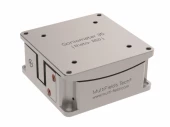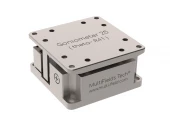Description
The Goniometer Series is a collection of piezoelectric motion units designed for low-temperature applications. These precision stages offer controlled rotation along the theta and phi axes, providing accurate positioning and control in various scientific and industrial settings.
With compact dimensions and compatibility with ultra-high vacuum environments and low temperatures, the Goniometer Series is an ideal solution for applications requiring precise angular adjustments.
Goniometer Series - Low Temperature Piezoelectric Motion Unit
Specifications
| Vacuum Compatible: | Yes |
|---|---|
| Microstep Size (default Resolution): | Not Specified |
| Built-in Controller: | No |
| Range Of Motion: | 0.0005 – 12 deg |
| Accuracy (unidirectional): | Not Specified |
| Maximum Speed: | Not Specified |
| Minimum Speed: | Not Specified |
| Temperature Range: | 1.4K ~ 400 K |
| Max. Load: | 200 g |
| Max. Load: | 2.2 N |
| Encoder: | Resistive Sensor |
| Sensor Range: | 10 ° |
| Sensor Resolution: | 0.2 m° |
| Drive Voltage: | 200 V |
| Pins: | Driven - 2 pins; Sensor - 3 pins |
| Main Body: | Default: Pure Ti; ULT: BeCu |
Features
- Compact design with dimensions: 25mm x 25mm x 12.5mm (Goniometer25-theta and
- Goniometer25-phi), 35mm x 35mm x 16mm (Goniometer35-theta and Goniometer35-phi)
- Compatibility with ultra-high vacuum (2E-11 mbar) and low temperature (30mK) environments
- Non-magnetic material construction (Pure Ti and BeCu) suitable for use in 18 Tesla magnetic fields
- High load capacity: 200g (Goniometer25-theta and Goniometer25-phi), 500g (Goniometer35-theta
- and Goniometer35-phi)
- Long travel range: 6.6° (Goniometer25-theta), 6° (Goniometer25-phi), 12° (Goniometer35-theta),
- 10° (Goniometer35-phi)
- Closed-loop control with position sensing and high resolution (0.2 m° for Goniometer25-theta and
- Goniometer25-phi, 0.5 m° for Goniometer35-theta and Goniometer35-phi)
- Drive voltage of up to 200V
- Driven by 2 pins; Sensor with 3 pins
- Rotation center to top plate: 40mm (Goniometer25-theta), 51mm (Goniometer25-phi), 50mm
- (Goniometer35-theta), 66mm (Goniometer35-phi)
- Lightweight design with a weight of 20g (Goniometer25-theta and Goniometer25-phi), 70g
- (Goniometer35-theta and Goniometer35-phi)
Applications
- Scientific research and experimentation requiring precise angular adjustments
- Optics and photonics applications
- Microscopy and imaging systems
- Semiconductor manufacturing and inspection
- Nanotechnology and materials science
- Metrology and precision engineering
Frequently Asked Questions
What are the dimensions of the Goniometer25-theta stage?
The dimensions of the Goniometer25-theta stage are 25*25*12.5 mm.
What is the maximum load that the Goniometer25-theta stage can handle?
The Goniometer25-theta stage can handle a maximum load of 200 g.
What is the travel range of the Goniometer25-theta stage?
The travel range of the Goniometer25-theta stage is 6.6°.
What is the resolution of the position sensing for the Goniometer25-theta stage?
The position sensing resolution for the Goniometer25-theta stage is up to 0.2 m°.
What is the material composition of the Goniometer25-theta stage?
The Goniometer25-theta stage is composed of pure Ti and BeCu, which are non-magnetic materials compatible with the 18 Tesla magnetic field.
Similar Products
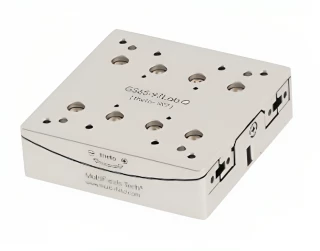
GS65-97-Tilting Motion Goniometer Stage with R=97 mm, compatible with GS65-77.Lab.O Stage
Zolix Instruments CO.,LTD
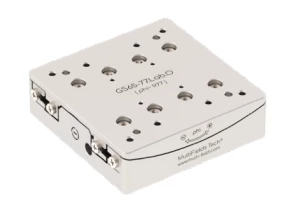
Tilting motion with R=77 mm, compatible with GS65-97.Lab.O stage
Zolix Instruments CO.,LTD
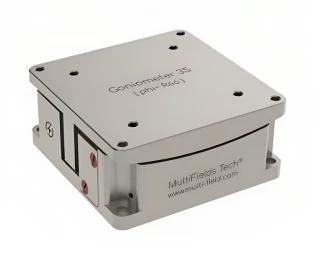
High-Precision Piezoelectric Motion Goniometer35-phi: Compact & Ultra-High Vacuum Compatible Tilter Stage
Zolix Instruments CO.,LTD
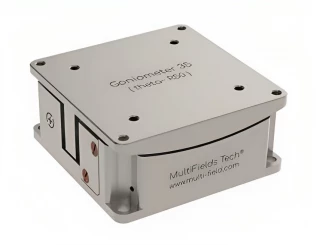
Goniometer35-theta: Advanced Low-Temperature Piezoelectric Motion Tilter Stage
Zolix Instruments CO.,LTD
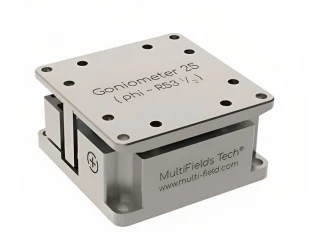
Goniometer25-phi: Precision Low-Temperature Piezoelectric Motion Goniometer
Zolix Instruments CO.,LTD
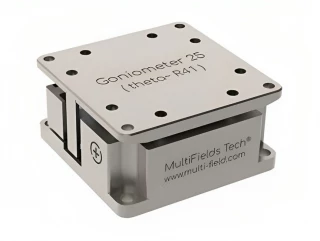
Goniometer25-theta Low Temperature Piezo Tilter Stage
Zolix Instruments CO.,LTD
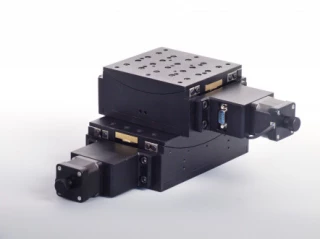
PSAG15-130 Motorized Goniometer
Zolix Instruments CO.,LTD
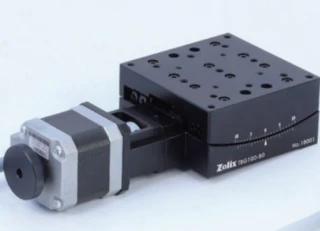
Motorized Goniometer: TBG Series from Zolix
Zolix Instruments CO.,LTD
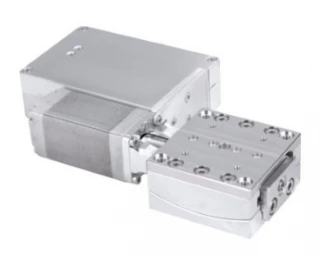
High Vacuum Motorized X-GSM-SV2 Series Goniometer Stage
Zaber Technologies
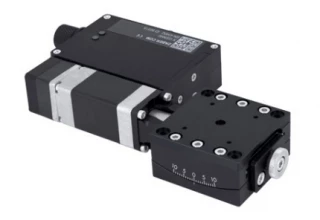
Motorized Goniometer Stage X-GSM60-E03
Zaber Technologies
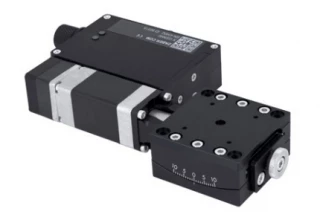
Motorized Goniometer Stage X-GSM40-E03
Zaber Technologies
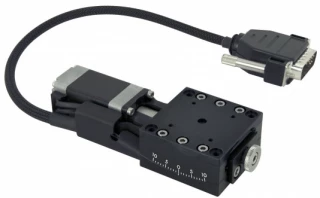
X-GSM Series Motorized Goniometer with Built-in Controller
Zaber Technologies
Thank You!
Your inquiry has been received.
Create an account by adding a password
Why create an account?
- Auto-complete inquiry forms
- View and manage all your past messages
- Save products to your favorites
- Close your account anytime — no hassle
